Behind Manchester United’s role in ‘Project Gandalf’, 1998’s European Super League plot
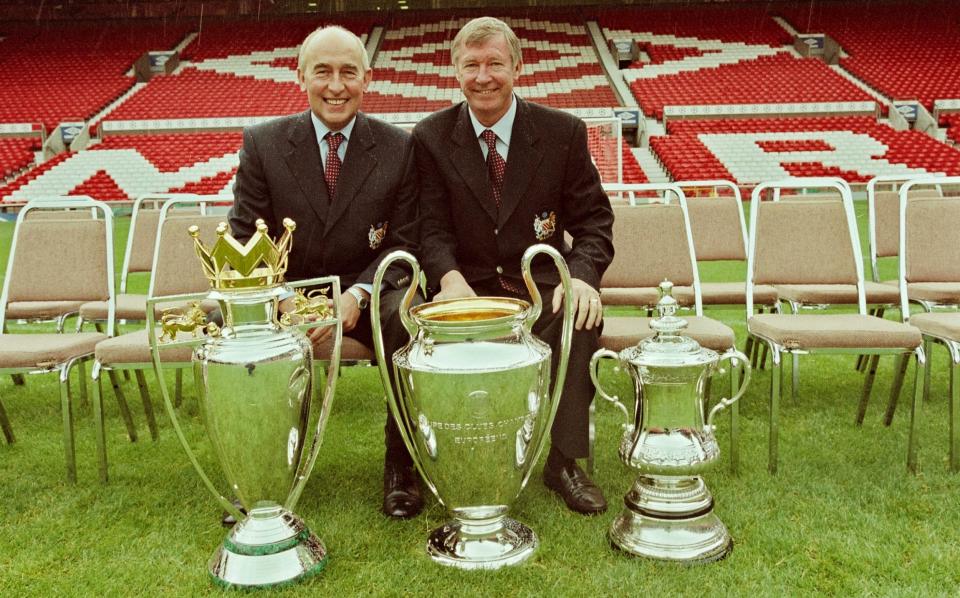
Manchester United host Liverpool in the Premier League on Sunday almost three years after the same fixture had to be postponed because of fans storming Old Trafford during angry protests.
Long-standing fury at the Glazer family’s ownership of United exploded in the wake of the Americans’ involvement in the failed European Super League (ESL) debacle just weeks earlier.
Hundreds of fans broke into Old Trafford to demonstrate amid extraordinary scenes that led to clashes with police and the game being postponed on safety and security grounds.
The drama unfolded just 3½ months before the sad passing of Maurice Watkins, United’s long-time solicitor and a close ally of Sir Alex Ferguson who had also served as a club director from 1984 until his departure in 2012.
But a riveting new book reveals Watkins’ shock and dismay that United and other clubs behind the controversial ESL proposals that quickly collapsed amid international condemnation had seemingly given “no consideration whatsoever” to lessons learned from events that had occurred more than two decades earlier.
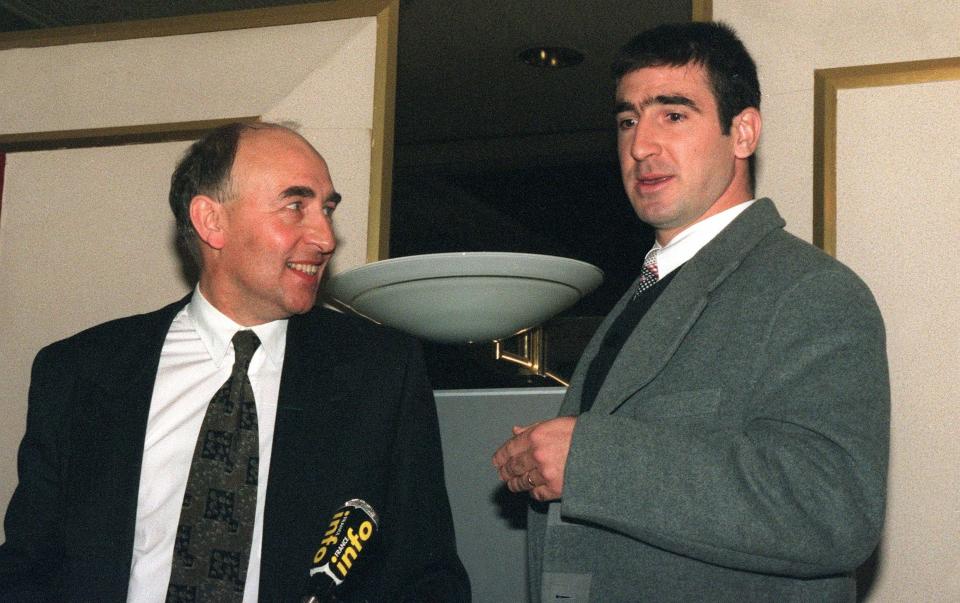
Watkins, after all, had a front row seat during the initial attempts to create a European Super League in 1998, or what became known as “Project Gandalf”.
And he has lifted the lid on the original plot while offering a withering appraisal of efforts to reprise the concept in 2021 that he coins “Gandalf II” in his posthumously published autobiography, Legally Red.
“It was clear to me this was a case, in the main, of American capitalist owners, not for the first time, driving business interests without appreciation for what football means in the UK and being completely disengaged from its fans,” Watkins wrote in a thinly veiled attack on the Glazers, Liverpool’s US owners Fenway Sports Group and the ESL’s other architects.
The parallels between the two plots are clear, from the unease and misgivings of some “founding” clubs at the proposals to criticism around creating a closed shop, accusations of greed and self-interest and the inevitable backlash from Uefa and the Premier League. Both plans would also accelerate changes to the existing format of the Champions League. The key difference was Uefa and the Premier League were not kept in the dark in the way they would be all those years later.
In May 1998, Watkins and United’s chief executive, Peter Kenyon, had been invited to Brazil to take part in a series of sports business conferences organised in Sao Paulo. If not a pretence then the seminars would play second fiddle to the real dealings at play in the quiet corners of Sao Paulo’s luxury InterContinental hotel.

Media Partners, a Milan-based sports marketing consultancy who advised the Italian Serie A on its television deals, were there to promote the creation of a new midweek league comprising 24 or 32 clubs whose membership would be part status, part merit determined and guarantee vast revenues for those involved.
Initially dubbed “Operation Parsifal”, after the Wagner opera about a search for the Holy Grail, the most radical concept behind this new European Super League was the proposal that founder clubs would enjoy permanent membership as a consequence of their size and wealth.
Gerhard Aigner, the Uefa general secretary who would soon be spearheading the European governing body’s fight against the ESL, later fingered the Milan owner Silvio Berlusconi as the chief instigator of the breakaway project. Milan had just failed to qualify for the Champions League, a situation that appalled the Italian media tycoon, and Aigner took to referring to Media Partners as “the boys from the Milan tennis club” whom he felt were effectively doing Berlusconi’s bidding for him.
The so-called “founder” clubs – United, Liverpool and Arsenal from England plus Milan, Inter, Juventus, Real Madrid, Barcelona, Bayern Munich and Borussia Dortmund, Paris Saint-Germain, Marseille, Benfica, Ajax, Panathinaikos and Galatasaray – were invited to a meeting at the London offices of Media Partners’ lawyers, Slaughter & May, on July 2.
In advance of the meeting, Watkins spoke to the Liverpool chief executive, Rick Parry, who voiced his concerns. Parry’s view, according to Watkins, was that the project was “politically flawed” from a sporting perspective because it was “built on a franchise as opposed to a merit basis”. Liverpool would skip the meeting and Watkins recalls the wider “nervousness” the talks generated. “No one wanted to be identified as being present,” he wrote. “If there were 12 clubs to sign, then everyone wanted to be the 12th club to sign up”.
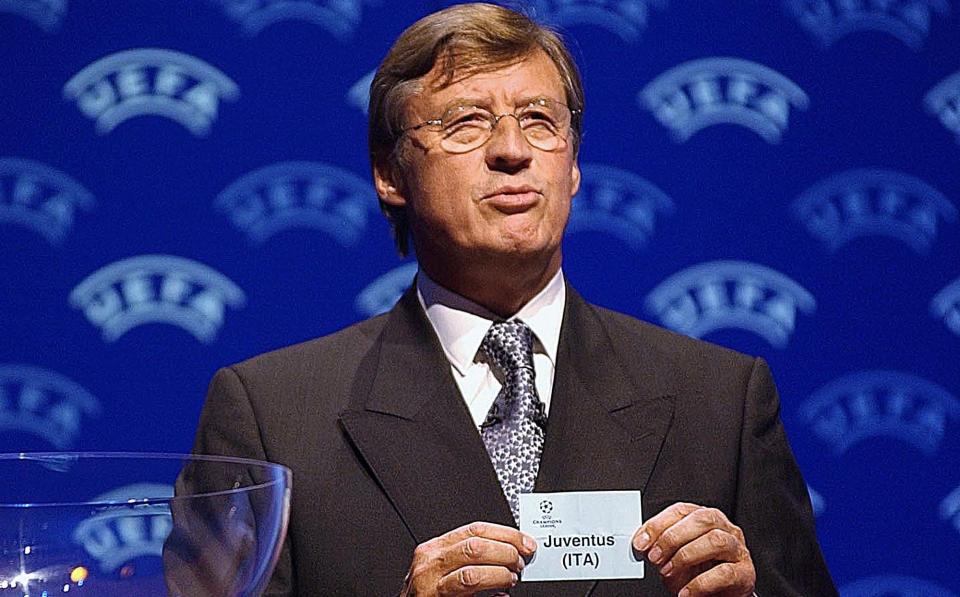
By now code-named “Project Gandalf”, Watkins estimated there were at least 52 people in the room, including lawyers and bankers. A second draft of the so-called Founders Clubs’ Agreement was circulated. Clubs would be guaranteed to share a minimum pot of $3.233 billion over the first three seasons of the competition.
Milan, Juventus, Real, Barcelona, Bayern and United, the six clubs with the highest “market value”, would each receive $8,333,330 in the first season. Clubs would continue to compete in their domestic leagues.
Before long, news of the meeting had leaked. Uefa vowed to defend the Champions League “by all available means” and, on July 28, United, Liverpool and Arsenal received a faxed letter from the Premier League’s lawyers, Herbert Smith, threatening legal action.
Premier League and FA rules determined that clubs could only play in competitions formed with the consent of the two bodies. United, Liverpool and Arsenal were warned that if they continued discussions or signed up to the ESL without first obtaining consent from the Premier League then High Court proceedings seeking an injunction would be issued.
This is where the original ESL plot deviated markedly from what would follow 23 years later: Uefa and the Premier League ended up in the thick of the discussions.
On August 18, Aigner would meet with executives from Liverpool, Arsenal and United in Watkins’ offices in King Street, Manchester, where those present were smuggled in through the secluded rear entrance to escape the attentions of any press. Danny Fiszman and Ken Friar came from Arsenal but not David Dein, a proponent of the breakaway league, which, to Watkins, confirmed a split in the Highbury board. Watkins also knew Parry and Liverpool secretary Peter Robinson were “cautious” about the project but wrote “the cynic often said Liverpool came late to the party and drank all the champagne”.
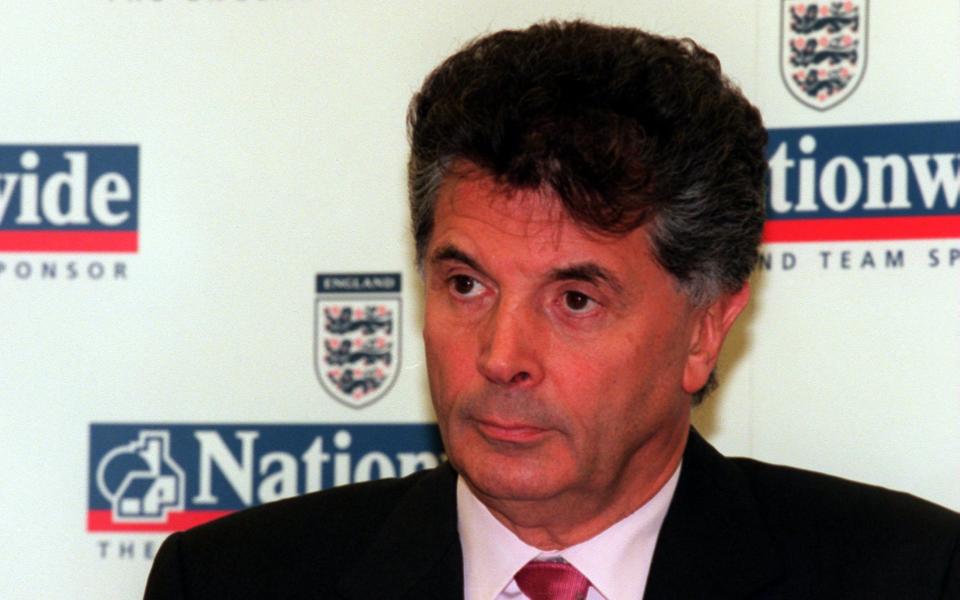
Aigner described the ESL as a “cartel” and a “raid” on European football designed to “facilitate the proposers’ own purposes” that would involve a fight with domestic leagues. But while Uefa would oppose the project and any notion of a closed shop where qualification for competitions was not achieved on merit, he suggested the financial objectives of clubs could be achieved through different means and agreed clubs needed a forum that would allow them to talk directly to Uefa rather than through federations or national leagues.
The death knell for the ESL, certainly from an English perspective, was effectively sounded at a meeting of Premier League clubs with Media Partners and Uefa on September 3. The ESL, it was stated, would comprise two competitions – the Super League and Pro Cup involving a total of 132 clubs with matches played on Tuesdays, Wednesdays and Thursdays. Peter Leaver, the Premier League chief executive, proposed that all future discussions over the ESL should be handled by the Premier League board alone.
To Watkins and Kenyon’s surprise, United chairman Martin Edwards ended up voting in favour of that motion, a “killer blow” to the club’s efforts to remain involved and, within weeks, the whole project had fizzled out. For Watkins, the upside of the three-month saga was that he felt it had forced Uefa to change and deal more fairly with clubs.
But he was much less impressed with the way United, Liverpool and Arsenal plus Chelsea, Tottenham and Manchester City went about things over “Gandalf II”. They had, he said, demonstrated “an unbelievable arrogance in trying to wreck the football pyramid in breach of Premier League rules”.
Suffice to say there were plenty of United fans who would have agreed with him during those protests three seasons ago.
Standout moments of Watkins’ time at United
Prospective Man Utd owner Robert Maxwell: ‘Get me the Kremlin’
United would have been “swept away in the avalanche” had the disgraced media mogul Robert Maxwell managed to buy the club in 1984 in the years before the collapse of his business empire and death, according to Watkins.
Watkins claimed Maxwell’s interest in United was little more than a “publicity stunt” initially fuelled by a dispute over gate receipts with the club from a League Cup tie involving Oxford United, one of the clubs Maxwell owned.
“I am convinced that it was this row, this feeling that he was being accused of dishonesty, that triggered Maxwell’s decision to try to take control of Manchester United,” Watkins wrote. “He did it in a fit of pique”. Watkins recalls being invited to Maxwell’s London offices in Worship Street for a “quiet lunch” that proved anything of the kind with the dining room full with employees and advisers. News came through that Yuri Andropov, the leader of the Soviet Union, had died and Watkins recalled Maxwell – who knew Andropov’s likely successor, Konstantin Chernenko – barking loudly to his subordinates: “Get me the Kremlin”.

Perhaps even more arresting, though, was what Watkins described as the “mesmerising and revolting experience” of watching Maxwell eat. “I could not take my eyes off what was in his mouth or cascading down his chin,” Watkins wrote.
The 1990 FA Cup final triumph that saved Ferguson’s career
Mark Robins is often credited with saving Alex Ferguson’s job as United manager after scoring the only goal in a 1-0 win over Nottingham Forest in the FA Cup third round in January 1990. But, according to Watkins, it was Lee Martin’s goal against Crystal Palace in the final replay at Wembley four months later that proved rather more significant. “Had we lost, I think it likely Alex Ferguson would have been dismissed,” he wrote.
Recommending Ferguson to Barcelona before United
The course of United’s modern history was changed with the appointment of Ferguson in November 1986. And yet, only months earlier, Watkins had recommended the then Aberdeen manager to Barcelona’s hierarchy after receiving a call from the Catalan club’s vice-president, Joan Gaspart, asking if he could recommend a top level coach. “I told him to go for Alex Ferguson …” Watkins wrote.
The horse dispute that opened the door to Glazers
Watkins claims United’s board was never so “ham-fisted” as in their handling of the row between Ferguson and the club’s biggest shareholders, John Magnier and JP McManus, over the stud rights to the racehorse Rock of Gibraltar in 2004. The dispute would ultimately open the door to the Glazer family buying United the following year and Watkins said it “seemed bewildering” the board did not prevent the fall out from escalating to the extent it did.
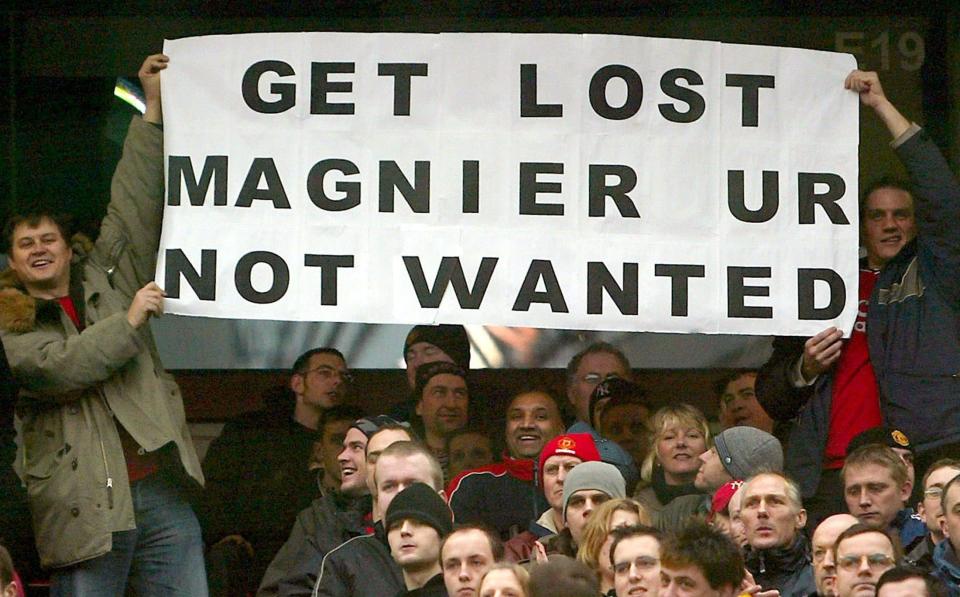
“You have to think the plc chairman, Professor Sir Roland Smith, that veteran of so many boardroom disputes and skirmishes, would have seen this one coming and stopped it in its tracks,” Watkins wrote.
The sale of Kanchelskis that made Watkins ‘fear for his life’
Watkins was involved in numerous transfer deals in his role as a director and the club’s solicitor but he says there was only one which made him “fear for my life”. The sale of Andrei Kanchelskis to Everton in 1995 proved anything but a straightforward affair. If United were to sell Kanchelskis against their wishes, the club insisted that a sell-on fee payable to Shakhtar Donetsk, from whom they had signed the winger, and the player’s agent Grigory Essaoulenko should be waived. Suffice to say the demand was not well received by Essaoulenko. “At one stage he screamed at Martin [Edwards]: ‘If you do not transfer him now, you will not be around much longer’,” Watkins wrote. “After Grigory had departed, Martin turned to me: ‘What are we going to do, Maurice?’. I didn’t hesitate. ‘Sell him!’”
Legally Red by Maurice Watkins is published by Hodder & Stoughton and available now (RRP £30.00)

